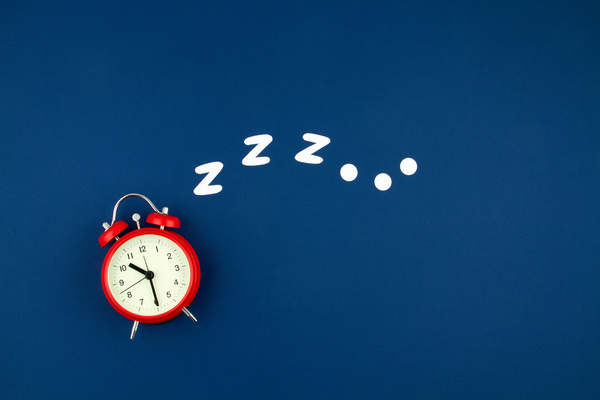THE WORLD’S #1 EXECUTIVE COACHING AND BUSINESS COACHING BLOG SINCE 2017.
Good Leaders Always Prioritize Proper Sleep
March 20, 2023 | Category: Blog, Intelligent Leadership | Last updated on: March 12, 2025
Leaders often neglect sleep, brandishing personal sacrifice as a badge of honor, but giving up sleep is a sacrifice hardly worth making. Lack of sleep dulls leaders’ skills, robbing them of patience and the ability to concentrate. Leadership coaching can help leaders implement behaviors that facilitate healthy sleep routines.
Those of us in leadership positions tend to have peculiar relationships with sleep. We know and understand it’s good for us. It makes us feel and perform better, and getting enough of it undoubtedly makes us better leaders, yet we perceive it as a luxury reserved for those who don’t have important matters to address.
As leaders, we may think of sleeplessness as a measure of self-sacrifice, but from the perspective of leadership coaching, this attitude is a woefully erroneous one.

Deep, healthy sleep makes you a better leader.
How Does Proper Sleep Improve Leadership?
Our bodies need sleep to function optimally. Leadership coaching professionals know that exercising curious, creative leadership requires deep thinking. Only a well-rested mind is capable of delivering this level of thinking.
The physiological need for sleep is non-negotiable. It doesn’t care about leadership ambitions, excitement, or workload. Leaders who fail to get around eight hours of replenishing sleep every night will find it more difficult to fulfill their purposes and lead optimally.
When we lose sleep, we unleash unimaginable adversity in our lives. The immediate effects of sleep deprivation are misfiring neurons, unsynchronized organs, and exhausted muscles.
Leaders who suffer from short-term sleep deprivation grow irritable and impatient with reports. They also fail to perform daily jobs efficiently.
Long-term, chronic sleep deprivation is another issue. It can cause obesity, insulin resistance, diabetes, heart problems, kidney failure, high cholesterol, and sleep apnea. Extreme sleep deprivation can even kill. Executive coaching understands the long-term effects of sleep deprivation in the workforce.
Good leaders lead by example. By continuously “sacrificing” themselves and giving up sleep on the altar of productivity, they encourage employees to do the same. The productivity-wise implications of such an approach are as devastating as its financial costs.
Giving up sleep to work more doesn’t help. It can cost organizations up to 11 days of lost productivity per worker per year. Its nationwide costs are close to $100 billion a year. Business coaching recognizes a negative leadership attitude toward sleep as a significant obstacle to organizational effectiveness and success.
The benefits of prioritizing proper sleep on the leadership and employee levels are undeniable. Well-rested leaders and employees are more productive, more engaged, and capable of problem-solving.
Rested leaders are effective and at the peaks of their sensory, motor, and language skills. Leaders who prioritize sleep empower and encourage employees to adopt similar approaches. A leader’s attitude toward sleep determines how effective teams are and how focused the organization is on its goals and purpose.
How Much Sleep Do Leaders Need?
We all grew up believing eight hours a night is the best routine. Some people may need slightly more, while others may get on with less.
Nowadays, the American Academy of Sleep Medicine recommends at least seven hours of sleep a night.
Get at least seven hours of sleep a night.
Perhaps more important than the quantity of sleep we get is the quality. Napping during the day may tempt those who don’t sleep enough at night. Falling into the habit of daytime napping may disturb one’s sleep patterns and hygiene, ruining the quality of sleep.
Solutions to the Leadership Sleep Conundrum
Executive coaching can help leaders defeat negative attitudes toward sleep. The solutions are as simple as they are effective. While well-known, the behaviors that can help leaders iron out their relationships with sleep are underutilized. Here’s what can help:
- Sticking to a consistent bedtime and wake-up time routine
- Forgoing caffeine, alcohol, and nicotine close to bedtime
- Not exercising before bedtime
- Not using the smartphone in bed before dozing off
- Seeking treatment for persistent and invasive sleep disorders
From the perspective of business coaching, the relationship between sleep and work comes down to productivity. The conclusions in this respect are unequivocal. By giving up sleep, one may work more, but the quality of the work declines. Those who sleep well and enough can do far more in less time.



